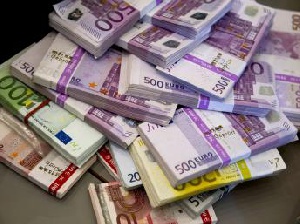Foreign direct investment into Ghana in 2013 defied analysts’ fears of a large drop, as the UN Conference on Trade and Development (UNCTAD) said this week in its annual World Investment Report that inflows were relatively stable.
FDI amounted to US$3.2billion last year, according to UNCTAD, compared to US$3.3billion in 2012, showing a two percent marginal slide.
The figures will surprise analysts a little as FDI was expected to drop by a large percentage because of political uncertainty during much of 2013, when the legitimacy of President John Dramani Mahama’s election was challenged in court by leaders of the New Patriotic Party.
Greenfield projects accounted for the lion’s share of inflows, recording a value of US$2.78billion. The country’s accumulated FDI up to the end of last year increased to almost US$20billion, the report revealed -- virtually double the stock that was measured in 2010.
The report ranked Ghana the sixth-largest recipient of FDI in Africa and second in West Africa, where Nigeria remains the biggest beneficiary despite a decrease in inflows caused by uncertainty in that country’s oil industry and a rise in security risks.
Worldwide, total FDI into countries returned to growth after the 2012 slump. Inflows picked up by 9 percent to US$1.45trillion in 2013. Developing economies were the biggest recipients with 54 percent of the total, while developed nations’ share was 39 percent. Transition economies accounted for the remainder. The report projected that global FDI flows could reach US$1.8trillion in 2016.
UNCTAD economists said “the gradual improvement of macroeconomic conditions, as well as recovering corporate profits and the strong performance of stock markets, will boost transnational corporations’ business confidence -- which may lead to a rise in FDI flows over the next three years.”
While UNCTAD does not disclose the specific investments received --or the deals signed -- by countries in its publications, its latest report named Ghana among markets that are being targetted by multinationals such as GlaxoSmithKline and Carrefour in their bid to expand in Africa.
The continent’s FDI receipts rose by 4 percent to US$57billion -- driven by international and regional market-seeking flows, and infrastructure investments.
According to UNCTAD, “expectations for further sustained economic and population growth [in Africa] underlie investors’ continued interest, not only in extractive industries but also in consumer-market-oriented sectors that target the rising middle-class population”.
Foreign investment in consumer-oriented sectors such as foods, information technology, tourism and retail is beginning to drive Africa’s FDI growth, the report said, adding that infrastructure investment is also showing strong increases.
Another trend highlighted by the report is the growth in intra-Africa FDI, led by companies in South Africa, Kenya and Nigeria. This trend is supporting African leaders’ efforts to achieve deeper regional integration, the UN body said.
African transnational firms provided 18 percent of FDI into greenfield projects within the continent between 2009-13. This share represented an improvement from 10 percent between 2003 and 08.
FDI into Africa is also characterised by burgeoning investment in agricultural research and development (R&D) as well as in innovation by international corporations.
Agricultural firms including DuPont and Barry Callebaut are investing in new agricultural techniques on the continent, while technology firms IBM, Microsoft and Google are funding research and helping to grow new innovation-driven businesses in the region.
Business News of Saturday, 28 June 2014
Source: B&FT
FDI defies fears of big fall
Entertainment












